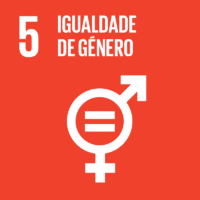Ciência_Iscte
Comunicações
Descrição Detalhada da Comunicação
Portrait of an ethnography during pandemic times: Bagamoyo remote reconstruction and the (Un)Freire of literacy policies in Mozambique
Título Evento
VIII Congresso da Associação Portuguesa de Antropologia (APA)
Ano (publicação definitiva)
2022
Língua
Inglês
País
Portugal
Mais Informação
Web of Science®
Esta publicação não está indexada na Web of Science®
Scopus
Esta publicação não está indexada na Scopus
Google Scholar
Esta publicação não está indexada no Google Scholar
Esta publicação não está indexada no Overton
Abstract/Resumo
Remote reconstruction of the beginning of the literacy policies developed by the Frelimo School in Bagamoyo (1970-1975), Tanzania, ending in the first National Literacy Seminar in 1975, in Mozambique, is the ethnography I develop since 2019. I went to the field supported by my previous ethnographic fieldwork (2011-2016), in which the encounter between national languages and the official language became one of the central issues to understand the (re)construction of national identity, looking for the origin of that (re)construction legitimated through the diffusion of the official language. Taking this on board, Paulo Freire (1921-1997), that contributed for the development of critical pedagogy, was a key actor in the development of literacy policies in PALOP post-independence contexts. In Mozambique, the field brought me the other side of the (hi)story, the (Un)Freire (hi)story. During pandemic times, my ethnography is done remotely, supported by a network of shared contacts, tuned with my long personal journey of research and experience in Mozambique. This will not be my final ethnography of Bagamoyo, but the one that the pandemic times allow me at the moment, applying an epistemology based on resilience and methodological resistances that underpinned my practice as an anthropologist.
(In VIII Congresso da APA, painel 091 - "Resilience and methodological resistances: ethnographies of Mozambique during pandemic times")
Agradecimentos/Acknowledgements
--
Palavras-chave
Pandemia,Antropologia,Moçambique,Metodologia,Etnografia
Classificação Fields of Science and Technology
- Antropologia - Ciências Sociais
Contribuições para os Objetivos do Desenvolvimento Sustentável das Nações Unidas
Com o objetivo de aumentar a investigação direcionada para o cumprimento dos Objetivos do Desenvolvimento Sustentável para 2030 das Nações Unidas, é disponibilizada no Ciência_Iscte a possibilidade de associação, quando aplicável, dos artigos científicos aos Objetivos do Desenvolvimento Sustentável. Estes são os Objetivos do Desenvolvimento Sustentável identificados pelo(s) autor(es) para esta publicação. Para uma informação detalhada dos Objetivos do Desenvolvimento Sustentável, clique aqui.

 English
English




